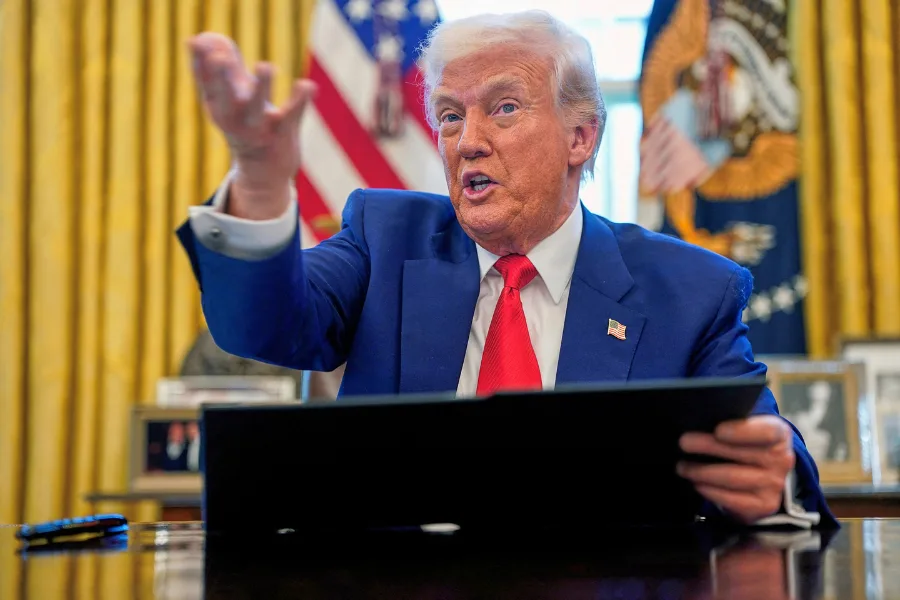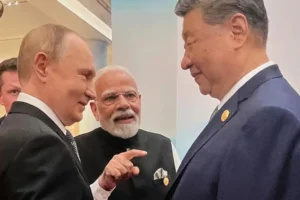
Trump EU tariffs 2025: The global business environment is changing once again as Europe begins to respond to the recent tariff policy of the United States. After President Donald Trump decided to delay the increase of 50% tariffs on imports from the European Union, global markets began a shift upward. Still, there appears to be more to the story. In addition, the way European leaders and companies are tactically responding shows that this is not the end, but rather the beginning of a much larger economic story.
Market Reaction to Tariff Delay
Recent reports in business suggest that U.S. futures spiked last night after Trump’s announcement concerning the tariff delay. Although U.S. markets were closed for Memorial Day, European indices showed signs of optimism almost immediately. The Stoxx 600 index gained 0.99%, while automotive stocks jumped 1.7% after having fallen 3% in the previous session.
Many economists have warned that this recovery could only be temporary. Holger Schmieding, Chief Economist at Berenberg, mentioned in a statement that although a partial tariff agreement can have a positive impact, the potential of a major response from the EU should be taken into account. “The EU would have to take serious counter measures,” he voiced.
Macron Deepens Ties with Vietnam
In an apparently unrelated development, French President Emmanuel Macron signed a cross-sector agreement with Vietnam on a state visit—his first to the country in almost 10 years. A major point in the agreement was Vietnam’s deal to purchase 20 Airbus A330neo planes. On the whole, the deal offers France an economic opportunity in Asia and supports Airbus during a challenging period in the global aviation sector.
Unlike many boisterous celebrations in Asia, Macron and the President Pham Minh Chinh ended their long event by announcing close cooperation on vaccines with Sanofi, as well as joint nuclear energy projects closer to France. Dubbed one of the EU’s “closest partners” after Vietnam extended a “Comprehensive Partnership” in 2019, France is strengthening ties with its international partners in light of rising tensions on trade with the U.S.
Volvo Cuts 3000 Jobs Amidst Tariff Pressures
Meanwhile in the auto sector, Sweden’s Volvo Cars announced it will be cutting roughly 3,000 jobs, primarily office roles in Sweden.
This decision is part of a $1.89 billion plan to cut costs, and is explicitly tied to ongoing issues around tariffs.
Like many companies, Volvo, owned by China’s Geely Holding, is facing ongoing pressures from Trump’s tariffs, and had previously withdrawn a China-sourced model from the US, and has now completely retracted its 2025 and 2026 financial projections.
The recent job reductions are a sign of increasingly serious economic distress from the unpredictability of trade policies.
Temporary Relief, Not Solutions
While the tariffs deferment buys time, all agree that the underlying fundamentals remain unchanged. The immediate risk of Trump’s new tariffs looms menacingly over the EU, and any future flare could threaten extant economic recovery in this area.
European governments and businesses are not pinning their hopes on upcoming political decisions. Instead, they are exploring new partnerships and getting new markets, while working to lower their internal costs in keeping with the needs of surviving in a more protectionist world.
Buffett’s Meeting Goes Undetected
In the fog of everything, Warren Buffett’s announcement of his resignation as CEO of Berkshire Hathaway at his company’s storied annual meeting was a notable story that may have slipped beneath the radar. While investors absorbed the news of real estate acquisitions and Japanese trading houses, the world looked on to tariff debates and their wider ramifications.
Final Reflections
The latest news on business reveal an important truth: while Trump’s delay of tariffs has provided support for markets, it hasn’t yet provided order. Certainly, leaders and industries in Europe are already adjusting—making new arrangements, restructuring, and preparing for what may get ever more messy in international trade. For investors, for analysts, and economists this is a reminder to not confuse delay for calm.







